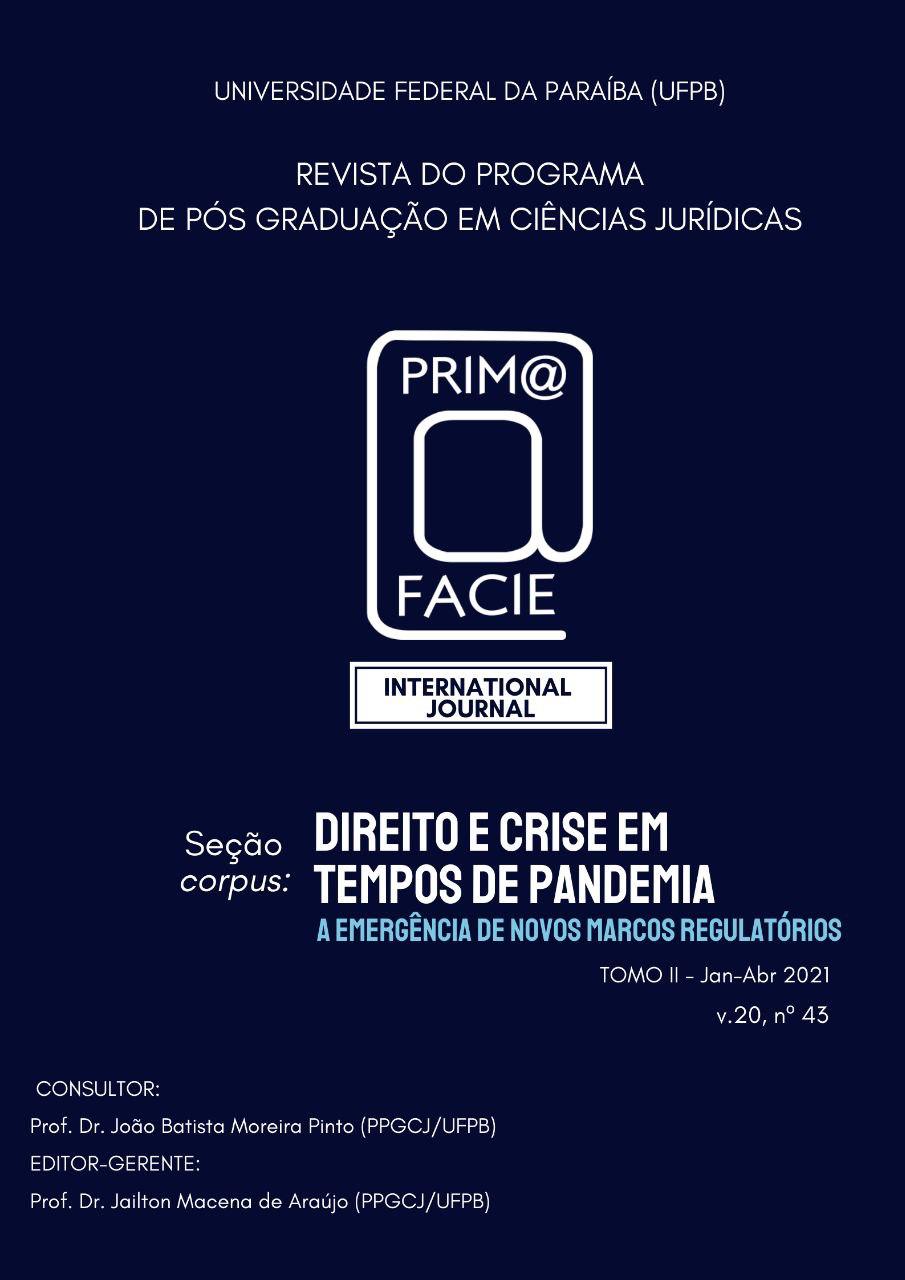Covid-19 Denuded The Contradictions Of The Brazilian Federative Republic: The Difficulty Of Legitimizing Decision-Making And The Proposal Of The Institution Of The Common
DOI:
https://doi.org/10.22478/ufpb.1678-2593.2021v20n43.53647Keywords:
Legal pluralism, decision making, pandemic, Covid-19Abstract
The world, in 2020, was added by a new coronavirus that spread to several countries and brought health problems, including deaths. The pandemic was decreed. The high contamination is the problem, given the fact of collapsing health systems. The main measure defended is social isolation, in order to flatten the contagion curve. In Brazil, federal entities do not defend the same proposals, and contribute to the worsening of the crisis. It is demonstrated that the difficulty of the national system in dealing with the crisis bares the problem of decision-making. In this scenario, it is thought to turn to the judiciary to assess the defense of fundamental human rights in the face of state public policies. It happens that the judicial process, although an alternative, requires respect for procedural procedures, which may not be efficient for an urgent decision. Thus, in view of the teachings about legal pluralism, as well as in the light of a more participatory and deliberative system, a new decision-making, non-centralizing and more democratic center is postulated, identified as a principle of the common. By the deductive method, with bibliographic consultations and scientific articles, we seek to understand such social issues, now bare in front of Covid-19.
Downloads
Downloads
Published
How to Cite
Issue
Section
License
Copyright (c) 2021 A Prim@ Facie detém direitos exclusivos de publicação e distribuição sob concessão absolutamente franca da parte do autor, ou autores.

This work is licensed under a Creative Commons Attribution-NonCommercial-NoDerivatives 4.0 International License.
Os autores estão cientes de que transferem seus direitos de publicação e distribuição à revista Prima Facie. Os autores autorizam o uso do trabalho para fins não-comerciais, incluindo direito de enviar o trabalho em bases de dados de Acesso Livre. As provas finais poderão não ser enviadas aos autores antes da publicação, seguindo a revista seu padrão técnico explicitado nas suas normas e nos formatos praticados em acordo com a CAPES e com padrões de excelência adotados. As opiniões emitidas pelos autores são de sua exclusiva responsabilidade não sendo a revista solidária da livre opinião exposta por eles.

